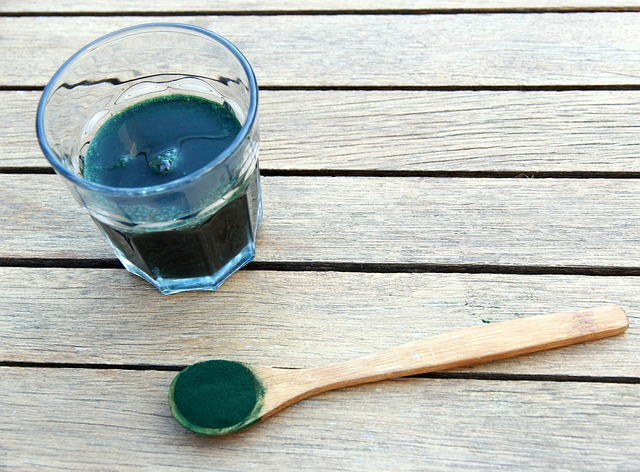Discover the Incredible Health Benefits of Spirulina
From fighting off free radicals to boosting the immune system and aiding in detoxification, spirulina has been touted as a powerful source of nutrition with a host of incredible health benefits. In this article, we examine the multiple ways in which spirulina can help improve overall health, from its nutritional composition and anti-inflammatory benefits to its unparalleled cardiovascular and immune support.
From weight loss management to improved skin health, these benefits cover a wide range of needs and demonstrate why spirulina is seen as such a vital supplement in the health industry. We’ll also touch on potential risks and how to ensure you get the best results from taking it.
Dive in to discover the incredible health benefits of spirulina today!
What Is Spirulina?
Spirulina is a type of blue-green algae that has been used for centuries by the Aztecs as an endurance booster and to treat various diseases. It’s a superfood packed with powerful nutrients and antioxidants that can help you stay healthy. But what makes it different from chlorella?
Well, spirulina is multi-celled while chlorella is single-celled. Plus, its cellulose wall is completely digestible so your body can absorb more of its goodness! Spirulina contains iron, zinc, vitamin B12, magnesium – all essential vitamins and minerals for a balanced diet – plus fatty acids and amino acids too.
But why should you add this ancient food to your daily routine? Well, spirulina boosts metabolism and protects against disease; it helps regulate cholesterol levels; it even aids in managing diabetes or blood sugar levels! And don’t worry about how to take it, just sprinkle some powder into smoothies or energy bars or take supplements if you prefer – but be sure to check with your doctor first before taking any supplement form.
Nutritional Benefits of Spirulina
Spirulina is a blue-green algae that packs a powerful punch of nutrition. It’s an excellent source of protein, vitamins, minerals, carotenoids and antioxidants – all in just one tablespoon! But what can this superfood do for you? Studies suggest spirulina may help regulate blood sugar levels, improve heart and gut health, fight inflammation and even protect the immune system.
The nutrient profile is impressive: 25 calories per tablespoon with essential amino acids plus B vitamins, copper, magnesium, potassium manganese and zinc. Plus it contains phycocyanin – a unique blue-green pigment that acts as a powerful antioxidant and anti-inflammatory agent. And don’t forget Omega 3s & 6s in the perfect 1.5 to 1 ratio!
But before you dive into this dietary supplement wonderland, there are some things to consider: more research is needed to determine the full extent of spirulina’s health benefits so be sure to consult your healthcare provider or registered dietitian first. That said, if you’re looking for an easy way to boost your nutrition intake then spirulina could be just what you need!
High Protein Content
Spirulina is a vegan source of protein, packing 8 grams into just one tablespoon – the same amount as two tablespoons of peanut butter or one ounce of chia seeds. But it’s not just quantity that makes spirulina special; its higher levels of essential and nonessential amino acids make it a more complete protein source than other plant-based proteins.
So what can consuming spirulina for protein do for you? It could help build muscle, aid in weight loss, reduce your risk of metabolic syndrome, create red blood cells, support gut health and lower cholesterol levels. All this from a single superfood! How incredible is that?
Rich in Vitamins and Minerals
Spirulina is a superfood packed with essential vitamins and minerals. It’s loaded with A, K, and B complex vitamins as well as copper, iron, magnesium, manganese, potassium and zinc. Vitamin B6, an antioxidant. A is especially beneficial for eye health – it helps reduce the risk of age-related vision loss and cataracts.
Spirulina also supports oral health – its beta-carotene content may help protect against oral cancer in people who chew tobacco. Plus it contains small amounts of zeaxanthin and beta carotene, which can shield your body from oxidative damage. So why not give spirulina a try?
Antioxidant Properties
Spirulina has a signature blue-green hue thanks to its high concentration of antioxidants like flavonoids and phycocyanin. But what are these compounds good for? Well, they provide impressive antioxidant and anti-inflammatory effects.
Free radicals can cause tissue damage, inflammation and even certain types of cancer. Phycocyanin works hard to fight them off by blocking molecules that promote inflammation. Studies suggest spirulina may also help reduce lipid peroxidation – a process caused by oxidative stress – but more research is needed to understand the full extent of its benefits.
Potential Health Benefits of Spirulina
Spirulina is a blue-green algae that has been used as a food source and dietary supplement for centuries, becoming more and more popular due to its essential nutrients and many health benefits. Numerous studies have explored the potential of spirulina supplementation, with promising results.
It may help improve heart health, reduce cholesterol levels and triglycerides, increase nitric oxide production, support gut health by providing prebiotic properties and reducing inflammation. Further evidence suggests it can also aid in cholesterol management, weight loss, reduced blood pressure, muscle strength development, anemia prevention and even anti-cancer properties.
The evidence is growing, but further research is needed – if you’re thinking about adding spirulina to your routine, it’s important to speak to your doctor or registered dietitian first to make sure it’s safe for you personally. The potential benefits are numerous: improved heart health; lower cholesterol; better gut health; weight loss; increased muscle strength; anemia prevention; anti-cancer properties – all from one superfood!
Heart Health
Spirulina has been likened to a superfood, with potential to improve heart health. Could it really reduce cholesterol levels and triglycerides? Increase nitric oxide production? In one study, subjects who took 4.5 g of spirulina per day for 12 weeks saw their total cholesterol, LDL cholesterol and triglycerides drop like stones – while HDL cholesterol rose like the morning sun.
Another study found that taking 2.8 g of spirulina per day for eight weeks led to a significant decrease in LDL cholesterol, total cholesterol and triglycerides – as if they had been swept away by an invisible broomstick! These results suggest that spirulina may be beneficial for heart health – but could it really be true?
Gut Health
Spirulina may offer a range of advantages for gut health, including its prebiotic properties and potential to reduce inflammation. Prebiotics are fibers that can’t be digested, but they do help promote the growth of beneficial bacteria in the gut – aiding digestion and keeping your microbiome healthy.
Research has shown that taking spirulina supplements could increase levels of helpful bacteria like Lactobacillus and Bifidobacterium in the gut. In one study, participants who took 4.5 g of spirulina daily for 12 weeks experienced a significant decrease in markers of inflammation.
Another study found that consuming 2.8 g per day over eight weeks led to a notable reduction in irritable bowel syndrome symptoms – further suggesting spirulina’s positive impact on gut health!
Cholesterol Management
Studies have found that spirulina, a type of blue-green algae, may have beneficial effects on cholesterol levels. But how? In one study of obese adults with metabolic syndrome, those who took 4.5 g of spirulina daily for 12 weeks saw their LDL cholesterol and triglycerides drop significantly – plus an increase in HDL cholesterol compared to the control group.
Another study looked at people with high cholesterol and found that taking 1.5 g of spirulina per day for six weeks resulted in a decrease in total cholesterol, LDL cholesterol, and triglycerides.
These studies suggest that spirulina could be helpful for reducing bad cholesterol and improving heart health – but more research is needed to understand its full benefits.
Weight Loss
Spirulina is believed to have major benefits for weight loss – and studies prove it! A study of 36 obese adults found that those who took 4.5 g of spirulina per day for 12 weeks had a significant reduction in body mass index (BMI) compared to the control group. Similarly, another study of obese women showed that taking 2 g of spirulina per day for 8 weeks resulted in a significant decrease in BMI and body weight. But how does this superfood help with weight loss?
Spirulina has the power to reduce appetite and increase satiety. In fact, one study on healthy adults revealed that consuming 3 g of spirulina daily over two weeks significantly decreased hunger levels and increased fullness. Plus, its low-calorie content combined with high fiber makes it an ideal addition to any calorie-restricted diet – so you can slim down without feeling deprived!
Reduced Blood Pressure
Spirulina has been hailed as a superfood, and for good reason. It’s been studied to see if it can help reduce blood pressure – and the results are promising. A study of 64 adults with hypertension found that those who took 4.5 g of spirulina per day for 12 weeks had significant reductions in systolic and diastolic blood pressure compared to the control group. Similarly, 81 participants with prehypertension saw their systolic and diastolic blood pressure drop after taking 2 g of spirulina per day for 12 weeks.
So how does Spirulina work its magic? Scientists believe it could be due to its anti-inflammatory properties or ability to increase nitric oxide production – both of which were confirmed by a study on 60 people with allergic rhinitis, where 5g of Spirulina platensis taken daily over 6 weeks was more effective than cetirizine at improving symptoms and decreasing inflammation.
The evidence is stacking up in favour of Spirulina being able to reduce blood pressure – but further research is needed before we can say definitively that this superfood really lives up to its name!
Muscle Strength
Spirulina may have the potential to help elderly individuals become stronger and more energetic. A study of 50 women aged 65-85 years found that taking 4.5 g of spirulina daily for 12 weeks led to a noticeable increase in muscle strength, as measured by body weight and BMI.
Can something so simple really make such a difference? This study suggests that spirulina could be beneficial for improving muscle strength and endurance in older adults.
Supports Anemia
Spirulina is known as a superfood, packed with potential health benefits. Studies have suggested that consuming spirulina supplements may help support anemia – an iron deficiency which can cause fatigue and muscle weakness.
A study conducted on senior citizens with anemia showed promising results: after 12 weeks of taking 4.5g of spirulina supplements every day, the hemoglobin content in their red blood cells increased significantly. Even more impressive was when one participant continued the study for 10 months; there was a clinically significant improvement in CD4 and decreased HIV viral load.
This suggests that spirulina could be like a life-raft for senior citizens suffering from anemia – providing them with much needed relief and support.
Potential Anti-Cancer Properties
The potential health benefits of spirulina are immense – could it really help protect us from cancer and other diseases? Studies have found that its antioxidant and anti-inflammatory properties can inhibit the growth of cancer cells. In one experiment, mice were given oral cancer cells then treated with spirulina extract – they had significantly fewer cancer cells than the control group! But wait, there’s more: research suggests spirulina may reduce risk of chronic arsenic poisoning too. Rats exposed to arsenic who were fed daily amounts of spirulina showed a decreased risk for developing cancer – suggesting this superfood might be our secret weapon against disease.
Diabetes Control
Spirulina has been studied for its potential to help with diabetes management. Could it really be the answer? Animal studies have found evidence of spirulina’s ability to help the body eliminate candida cells, leading to improved blood sugar control. In a study on rats with diabetes, those fed daily amounts of spirulina had significantly lower levels of candida cells than the control group. But is this enough? Further research is needed to confirm these findings and explore potential mechanisms of action.
Dosage and Side Effects
Spirulina is a type of blue-green algae, a superfood supplement with many health benefits. It can be taken in the form of capsules, tablets, powders or energy bars – but before you do, it’s important to understand the recommended dosage and potential side effects.
For adults, 1-3 grams per day is recommended – up to 10 grams for those looking for higher doses. However, if you’re pregnant or breastfeeding, taking other medications, or have an autoimmune disease, spirulina should be avoided altogether. Even if none of these apply to you, it’s still best to speak with your doctor first!
Though generally safe according to the FDA, there are some possible side effects associated with taking spirulina such as nausea and headaches. Plus it could potentially contain lead or other heavy metals so make sure you buy from a trusted source!
In conclusion, Spirulina is a great dietary supplement that comes with plenty of health benefits – just remember not exceed the recommended dosage and always check in with your healthcare provider before use!
How Much Spirulina Should I Take?
The general guideline for taking spirulina? Don’t use more than what’s listed on the product label. According to the NIH, 19 grams per day is the highest dose people have used – and only for two months! That’s equivalent to 19 teaspoons of spirulina a day.
A study published in the International Journal of Preventive Medicine found that up to 19 grams daily was safe – and even reduced triglycerides and LDL cholesterol when taken at 1 gram per day over 12 weeks. But don’t extrapolate these findings to other dosages!
If you’re looking to take spirulina as a dietary supplement, it’s best to chat with your healthcare provider or registered dietitian about how much you should take. For those wanting lower total cholesterol levels, 1 gram per day is recommended.
What Are the Side Effects of Spirulina?
Before taking spirulina supplements, do you know the potential side effects? Common ones include nausea, bloating and headaches. In rare cases, allergic reactions such as rashes, swelling and difficulty breathing can occur. Children and pets should not have access to spirulina supplements and pregnant or breastfeeding women should avoid taking them due to lack of safety information.
If any of these symptoms arise while taking spirulina, it’s essential to stop immediately and contact a healthcare provider. Too much could lead to liver damage, vomiting, weakness, a rapid heartbeat – even shock or death!
So make sure you follow the instructions on the product label – plus discuss any interactions with foods, other supplements or medications with your doctor before starting spirulina supplementation.
Summary
Spirulina has been used for centuries and has recently become popular again among the health-conscious. This blue-green algae is packed with essential nutrition, antioxidants, and anti-inflammatory agents, which can provide many potential health benefits that are beneficial for overall health and wellbeing. Its high levels of protein promote muscle growth and repair, and its various vitamins and minerals support heart health, gut health, and reduce cholesterol levels.
It may also aid in weight loss, and has potential anti-cancer properties, as well as reducing blood pressure and supporting anemia. However, it is important to follow the recommended dosage and speak to a healthcare provider before taking spirulina to avoid potential side effects such as nausea, headaches, allergic reactions and even liver damage, vomiting, weakness, shock, and possibly death.
For those looking for a nutritious supplement and wanting to reap the benefits of this superfood, spirulina is a great place to start.
Frequently Asked Questions
What is spirulina good for?
Spirulina is a good source of nutrients and can have positive effects on heart health. It can help lower levels of total cholesterol, LDL cholesterol and triglycerides and may also lead to higher levels of HDL or “good” cholesterol.
Furthermore, its anti-inflammatory and antioxidant properties can help prevent damage to fatty compounds like cholesterol. Nov 18, 2022.
Who should not take spirulina?
Due to the potential for interactions with medications and the unknown long-term effects, it is recommended that pregnant or breastfeeding women, children, individuals with weakened immune systems, and those on medication should not take spirulina.
What happens when you take spirulina everyday?
Taking spirulina everyday can help you feel your best – giving you more energy, better digestion and immunity, clearer skin, and improved brain function. Its low calorie content also makes it great for those looking to lose weight or maintain a healthy lifestyle.
Every day is a great day to incorporate spirulina into your diet!
Is it safe to take spirulina?
Spirulina is generally considered safe, according to medical and scientific research. Generally, should be taken after consulting a doctor because of potential drug interactions with some medications.
What does spirulina do for the body?
Spirulina is a type of algae with an array of health benefits. It’s high in several vitamins and minerals, plus protein, and is a good source of antioxidants. Evidence suggests that its beneficial compounds may reduce inflammation, improve cholesterol and triglyceride levels, and protect brain health.
Overall, spirulina is an excellent choice for improving overall health. Nov 11, 2021.










